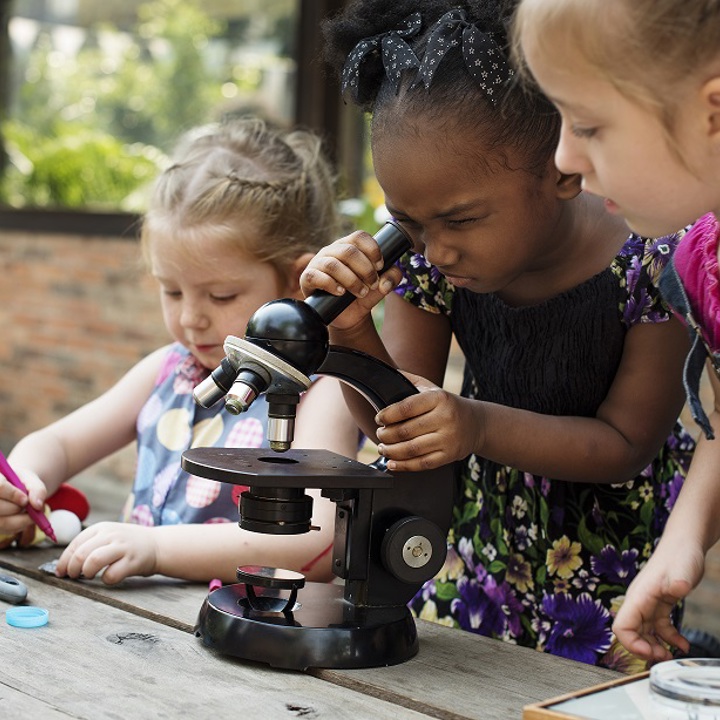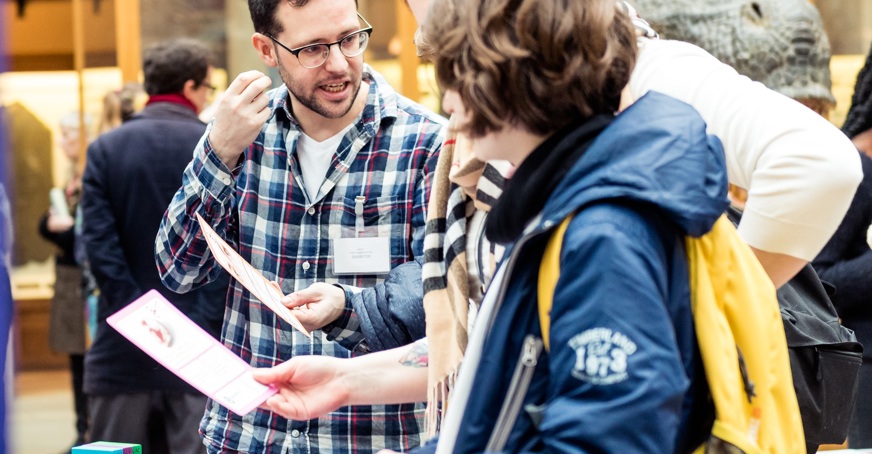
Planning Your Activity
Public engagement and outreach activities are a great way to share your research and engage communities in the molecular biosciences.
Use our tips, considerations and resources to help you start planning an effective and engaging public engagement or outreach activity.
Planning your activity
It is best to start with an aim for your activity; what are you trying to achieve through your activity?
What is the key message you are trying to communicate? What are you and the participants wanting to get out of the activity?
You will need to think about who the activity is for and the best way of engaging those participants. This will involve thinking about the format, whether online or in person, as well as the activity itself.
Places where the public congregate to learn more about science, such as festivals, schools and museums make perfect locations for public engagement.
However, think about the community you are trying to reach. Going to the community rather than them coming to you can give the participants a sense of ownership of the activity and can improve the level of engagement.
Take a look at some national initiatives and organisations to get you thinking.
Once you have an idea, you may need funding for your public engagement or outreach activity.
The Biochemical Society offers grants of up to £1000 for public engagement and outreach initiatives
Scientific Outreach Grants
Alternatively, explore a collated list of funding opportunities from the NCCPE
Scientific outreach and public engagement activities are desirable to a range of groups, organisations and institutions beyond the Biochemical Society, who will often be more than willing to collaborate on an outreach event. Collaborators can bring fresh ideas and support with organising, running and evaluating your activity. Here are some ideas for potential collaborators:
- Biochemical Society Local Ambassadors
- University outreach officers
- Local schools and colleges
- Local community networks
- STEM Ambassador Network
- Research Councils UK
Consider what the long-term benefits of your activity might be.
Will you be generating any resources that can be used by others? Could the activity itself be re-run by others by writing up a guide to the activity? Could you write about your experience to encourage others to run an activity?
Contact the education department if you are interested in publishing your activity or resource.
Think about who your participants could be.
Have you designed your activity so everyone can feel involved? Are there modifications you can make to your activity so diverse participants can be involved?
Have you thought about how equitable your activity is? You can use the resources from the YESTEM project, particularly the Equity Compass, to help you with this. The YESTEM project aims to support informal STEM learning providers to engage diverse communities.
Evaluating your activity is vital in considering whether you have met your aims, and what further benefits your activity might have.
What went well and what could be improved about your activity. Think about this from a variety of perspectives, such as the participants, the organisers and the deliverers of the activity. This could be done by asking for feedback using a variety of methods, which will depend on your activity.
You could try and think about evaluating the long-term impact of your activity on the participants by asking for feedback a while after the activity itself.
Explore some practical tips for evaluating your activity from the NCCPE and the Wellcome Trust.


Further resources to help you plan your activity
-
Planning your public engagement from the Wellcome Trust
-
A guide to public engagement from the NCCPE
-
A practical guide to public engagement from Sense about Science
- Guidance on engaging the public with your research from UKRI
- A guide to outreach event planning by Ranudi Kudellage and the University of Warwick BioSoc

Public engagement initiatives and organisations
Explore ways to volunteer and work with national initiatives and organisations that communicate and engage with the public.
Get involved!Contact us
Want support with designing and planning a public engagement or outreach activity? Please get in touch with the Education department.






